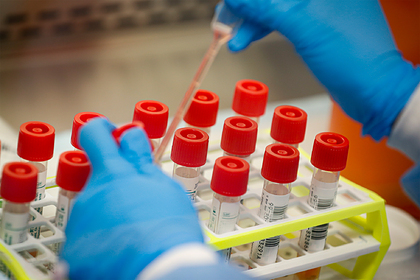
Scientists at the University of Bonn in Germany have found two families of active substances that can block the multiplication of the SARS-CoV-2 coronavirus. They are able to block the activity of the key enzyme of the pathogen, the main protease Mpro. The researchers' article was published in the journal Angewandte Chemie.
In order for the coronavirus to replicate, first the RNA of the virus is translated into the protein chain, after which the protease cuts it into individual components. Experts have studied the structure of the protease and the mechanisms of its work, which made it possible to develop a large number of potential inhibitors capable of firmly binding to the enzyme and blocking its active site.
During the experiment, the scientists prepared molecules that were cleaved by a protease, to which a reporter molecule was attached to emit light. When the protease was active, the substrate cleaved and fluoresced. However, if the inhibitor was effective and blocked the protease, there was no fluorescence. Most of the drugs tested were found to be useless, but some of them – azanitriles and pyridyl ethers – did indeed inhibit Mpro.

